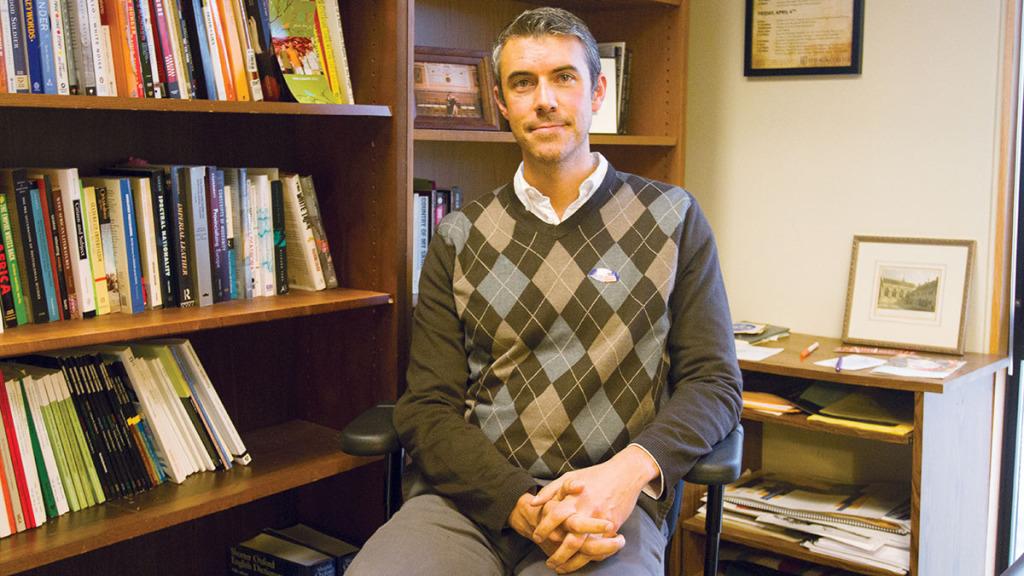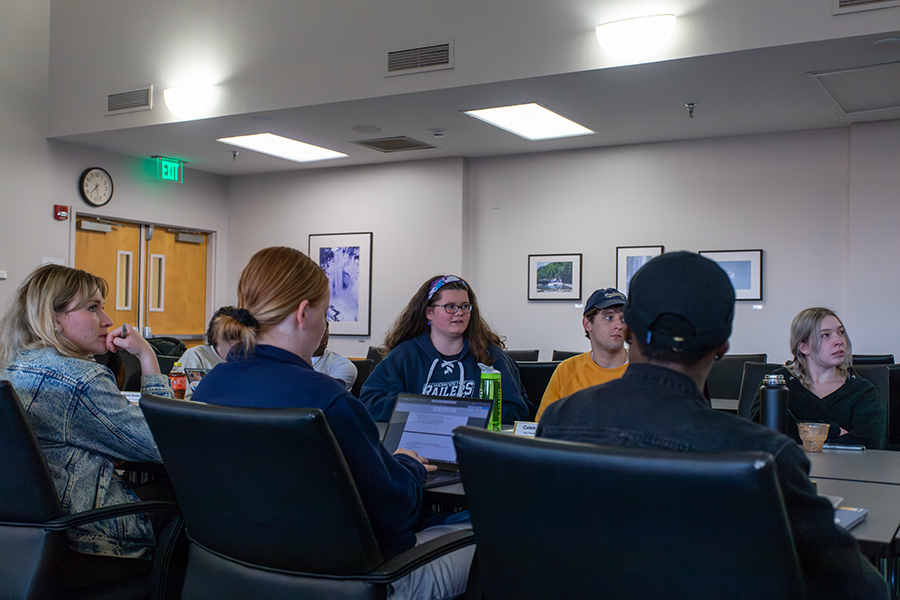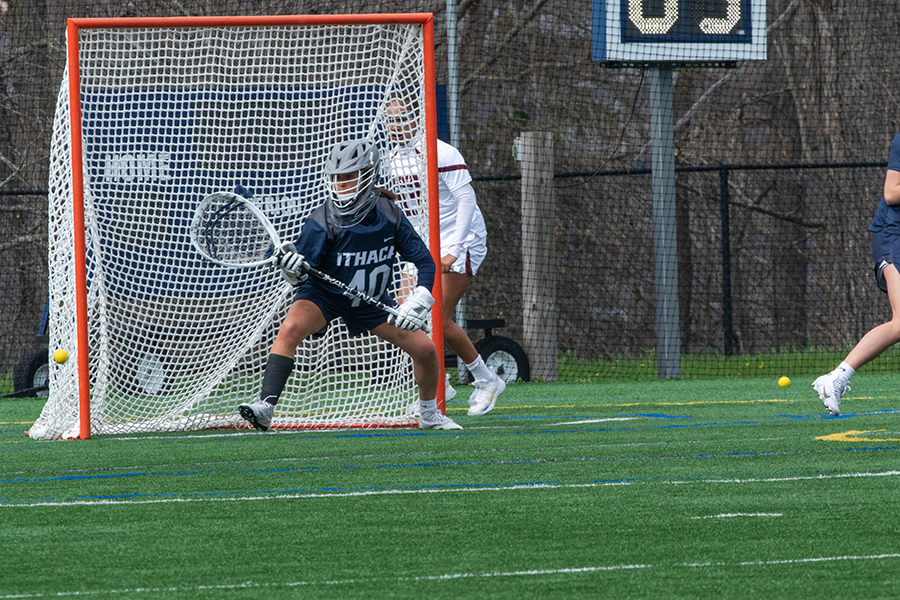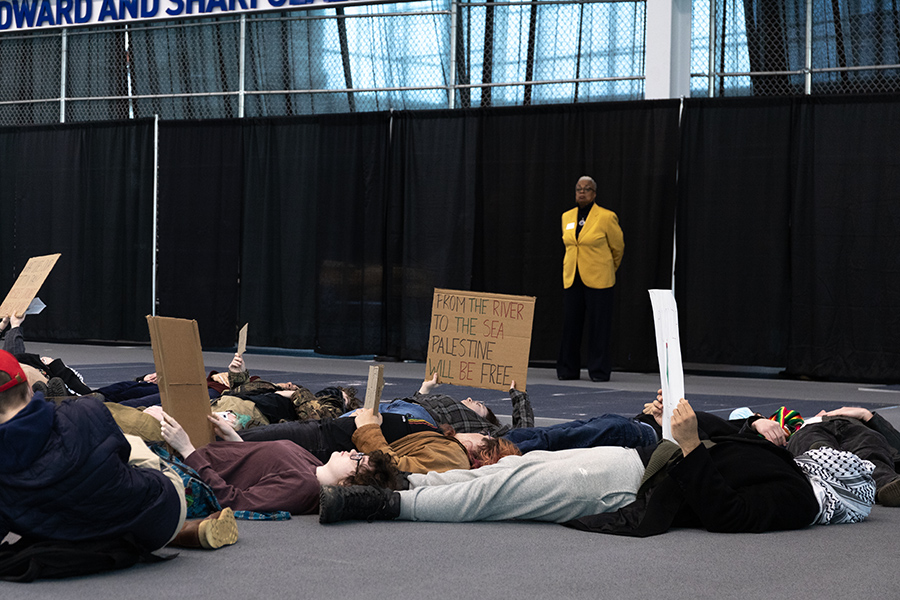Chris Holmes, associate professor in the Department of English, teaches a freshman seminar on guns and gun violence.
The seminar covers various political and social views on guns, the politics surrounding gun control and the overall impacts of gun violence by looking at both national and international statistics, case studies and policies.
Staff writer Krissy Waite sat down with Holmes to talk about his seminar, the current political climate surrounding gun violence and misconceptions about guns.
This interview has been edited for length and clarity.
Krissy Waite: How did you prepare to teach this course?
Chris Holmes: In preparation for that seminar, I did a lot of research into a number of facets on the issue. Everything from the public health component, the legal scholarship around the second amendment, and gun control laws and regulation of laws, to the history of gun culture and ideas of western frontier masculinity. Then we looked at modern political forms of gun rights versus gun control culture and trying to get a, sort of, really multifaceted look at the American condition now to try and understand. It happened that the class was last semester, and so the Las Vegas massacre happened sort of right in the middle of that class. So we sort of diverged to talk a lot about that.
KW: What topics did you cover in the course?
CH: The class took the form of units on each major facet, and we looked at different scholars who were thinking about things like who does gun violence actually affect. If you look at, sort of, percentages of where people are the victims of gun violence whether it be suicide, homicide, accidental death, etcetera, and we would look at social scientists, urban planners, philosophers and ethicists. We read things by doctors and surgeons who had to operate on people who had been shot and talk a little bit about the physiology of what happens. So we broke it into units rather than saying “let’s talk about guns” in this sort of free willing way where you just end up with the weird tribalism that we have now in the U.S.
KW: How is the U.S. culture and political culture different from other countries?
CH: In every way you could possibly imagine, at least amongst our peer nations. You know, either people think of Australia as a utopia because they had passed all these great controls and restrictions or they see it as the end of freedom and gun grabbing. The interesting thing about Australia, for the U.S. perspective, is that they’re super involved in sport shooting … So people think that after the 1996 Port Arthur massacre, when they did ban certain types of guns and put certain restrictions controls on them, that guns have disappeared from Australia, but they have about as many guns as they did prior to that massacre. What they’ve seen because they’ve instituted all this licensing and restriction, you have to have rationale for buying a gun, universal background checks, safety checks, training. There is a massive decline in homicides, zero mass shootings since 1996 and a huge drop in suicides. Everyone says that if you take away guns from someone who wants to kill themselves they’re going to successfully kill themselves using poison, hanging, etc. They don’t see that at all. There’s no rise in non-gun suicide deaths to go along with that plummeting suicide deaths in Australia … Places where we see little or no gun violence, like Japan, which will have years where zero people in the nation will die of gun violence, have a culture that is entirely oriented away from the notion that you would have a gun or that you would need a gun. You can track from the 1980s how we switched in the way we thought about gun ownership from hunting or sport to a quote-unquote self-defense or prevention against government tyranny. Most countries require that you have a reason for owning a gun, and they won’t let you say self-protection. It’s not a reason most countries would let you have a gun because they know you’re more likely to shoot yourself, a family member, a loved one or a neighbor than defend yourself. But in the U.S., since, kind of, the mid-Reagan era, more and more people believe, something like 85 percent of gun owners, believe they own a gun to protect themselves even though that doesn’t happen very often.
KW: From an academic standpoint, what are your thoughts about President Trump’s claim to arm teachers?
CH: I mean, it’s scary for a number of reasons. One, especially when we’re talking about elementary, middle and high school teachers, these are already incredibly overburdened, overworked people who even if you thought it was a safe thing to give people guns and train them in classrooms, they don’t want to do that. They have enough things to think about. They don’t want to have to worry about if they are going to be able to gun down someone that comes in the classroom. The second thing is that those teachers would often know who this person was, a student. And you’re assuming that this person’s moral, ethical being would allow them to shoot and kill, likely, someone that they knew, maybe taught in a class, maybe felt feelings of sympathy. And then finally, all the studies tell you that the bad guy with a gun was a good guy with a gun the moment before they committed that crime. So you don’t know what’s going to happen … I think it’s absurd.
KW: How do you feel college students can best approach this issue?
CH: I think we’ve been given an incredible gift by the survivors of Parkland, because they’ve basically said “Come march with us. Come march for your lives.” And whether that takes place at the D.C. march or other community-oriented things, I think you have the possibility of something like the women’s march, where you get this great awakening of groups of people ... I think if college students can latch onto the Parkland model … making noise, showing up, refusing to shut up even when people tell you “oh, you’re just a student, you haven’t lived in the world!” and refusing that because it has been young people during past social conflicts who have made cultural shifts. And I expect students will be part of that.








